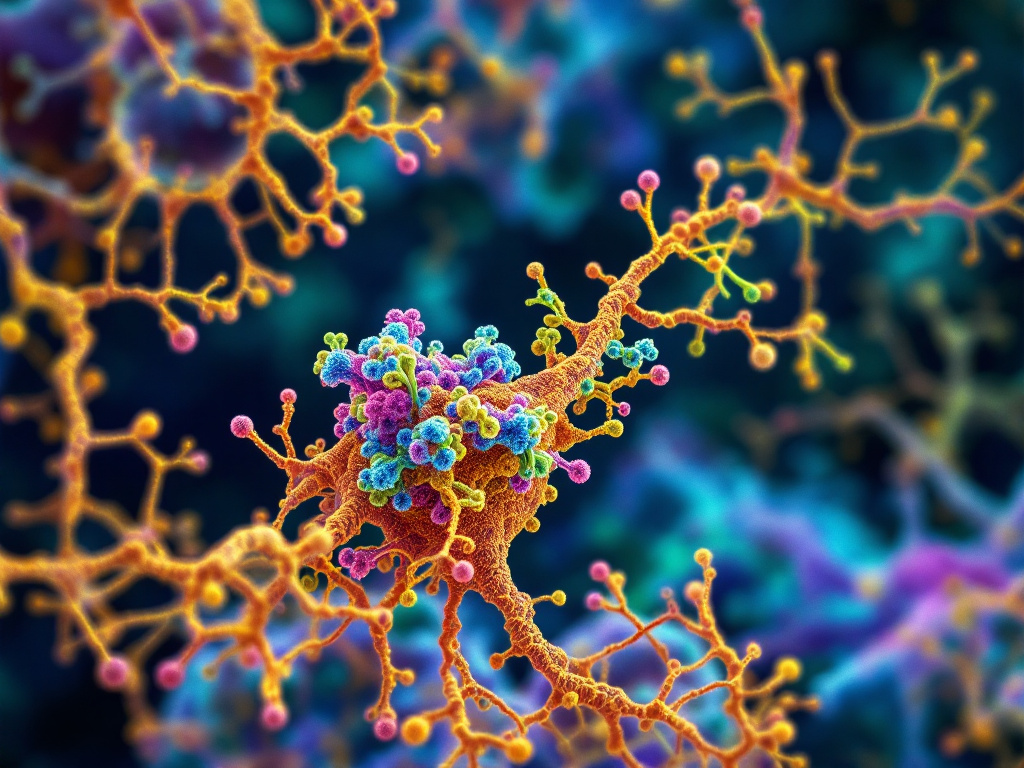
Autoimmune diseases occur when the bodys immune system mistakenly attacks its own tissues and organs. This can lead to chronic inflammation and a variety of symptoms, depending on the organs affected. Peptides, being short chains of amino acids, play a crucial role in modulating immune responses and maintaining immune balance. In the context of autoimmune diseases, peptides can either exacerbate or alleviate symptoms, depending on their specific sequence and function.
One critical aspect of peptide function is their ability to interact with immune cells. Peptides can bind to receptors on these cells, influencing their activity and cytokine production. For instance, some peptides can promote the differentiation of regulatory T cells (Tregs), which are essential for suppressing excessive immune responses and maintaining immune tolerance. Conversely, other peptides might activate pro-inflammatory pathways, leading to the worsening of autoimmune conditions.
Achieving immune balance is a central goal in managing autoimmune diseases. Peptides can contribute to this balance through various mechanisms. They can modulate cytokine production, shifting the immune response from a pro-inflammatory state to a more balanced or anti-inflammatory state. For example, certain peptides can inhibit the production of pro-inflammatory cytokines like TNF-α and IL-6 while promoting the release of anti-inflammatory cytokines like IL-10.
Peptides can also influence the trafficking of immune cells. By altering the expression of adhesion molecules and chemokines, peptides can control the migration of immune cells to sites of inflammation. This can help reduce the accumulation of immune cells in affected tissues, thereby minimizing tissue damage. Furthermore, peptides can affect the antigen-presenting capabilities of cells, influencing how the immune system recognizes and responds to self-antigens.
Moreover, peptides have the potential to restore immune tolerance. Immune tolerance is the ability of the immune system to recognize and not react against self-antigens. In autoimmune diseases, this tolerance is broken. Some peptides can help re-establish tolerance by promoting the deletion or inactivation of autoreactive immune cells. This can lead to long-term remission of autoimmune symptoms.



Peptide therapies have shown promise in inflammation reduction, particularly in chronic conditions such as arthritis relief, lupus support, and multiple sclerosis. The science behind this lies in peptides ability to target specific inflammatory pathways and immune cells. By modulating these pathways, peptides can effectively reduce inflammation and alleviate associated symptoms.
One of the primary mechanisms through which peptides reduce inflammation is by inhibiting the production of pro-inflammatory mediators. These mediators, including cytokines like TNF-α, IL-1β, and IL-6, play a central role in the inflammatory cascade. Peptides can bind to receptors on immune cells, preventing the activation of signaling pathways that lead to the production of these cytokines. This results in a decrease in inflammation and tissue damage.
In the context of arthritis relief, peptides can target the specific inflammatory processes that drive joint damage. For example, some peptides can inhibit the activity of enzymes like matrix metalloproteinases (MMPs), which are responsible for breaking down cartilage in the joints. By reducing MMP activity, peptides can help preserve cartilage and prevent further joint destruction.
Additionally, peptides can promote the production of anti-inflammatory cytokines, such as IL-10 and TGF-β, which help resolve inflammation and promote tissue repair. These cytokines can also modulate the activity of immune cells in the joints, reducing their ability to cause damage. The combined effect of inhibiting pro-inflammatory mediators and promoting anti-inflammatory cytokines makes peptides a valuable tool in managing arthritis.
For lupus support, peptides can address the systemic inflammation and immune dysregulation that characterize the disease. Lupus involves the production of autoantibodies that target various tissues and organs, leading to widespread inflammation. Peptides can help modulate the immune response, reducing the production of these autoantibodies and the associated inflammation. Some peptides can also promote the clearance of immune complexes, which are a major contributor to tissue damage in lupus.
In multiple sclerosis, peptides can target the inflammatory processes that lead to demyelination in the central nervous system. By reducing inflammation and promoting the survival of oligodendrocytes (the cells that produce myelin), peptides can help protect nerve fibers and prevent further neurological damage.




The practical applications of peptides in autoimmune support are diverse and continually expanding. Peptides are being utilized in various forms, including oral supplements, injections, and topical applications, to manage autoimmune conditions. Their versatility and targeted mechanisms of action make them a valuable addition to treatment strategies.
One common application is in immune modulation. Peptides can be designed to selectively modulate the activity of specific immune cells or pathways. This targeted approach allows for precise control of the immune response, minimizing the risk of broad immune suppression, which can lead to increased susceptibility to infections. For example, peptides that promote Treg cell activity can help suppress autoreactive immune responses without compromising the bodys ability to fight off pathogens.
Cytokine regulation is another critical application of peptides. In autoimmune diseases, the balance of cytokines is often disrupted, with an overproduction of pro-inflammatory cytokines and a deficiency of anti-inflammatory cytokines. Peptides can help restore this balance by inhibiting the production of pro-inflammatory cytokines and promoting the release of anti-inflammatory cytokines.
Peptides are also used for chronic pain management in autoimmune conditions. Chronic pain is a common symptom of many autoimmune diseases, and it can significantly impact quality of life. Some peptides have analgesic properties, meaning they can reduce pain by acting on pain receptors or modulating pain pathways in the nervous system. These peptides can provide much-needed relief for individuals suffering from chronic pain associated with autoimmune disorders.
Immune suppression is another area where peptides play a role. While excessive immune suppression can be detrimental, it is sometimes necessary to control severe autoimmune flares. Peptides can be used to selectively suppress the activity of autoreactive immune cells, reducing the intensity of the immune attack on the bodys own tissues. This can help prevent further tissue damage and alleviate symptoms.
Furthermore, peptides are being explored as potential therapeutic agents for specific autoimmune diseases, such as rheumatoid arthritis, lupus, and multiple sclerosis. Clinical trials are underway to evaluate the efficacy and safety of various peptide-based therapies in these conditions. Early results are promising, suggesting that peptides may offer a new and effective approach to managing autoimmune diseases.
Here is a quick recap of the questions asked and answered in this post:

